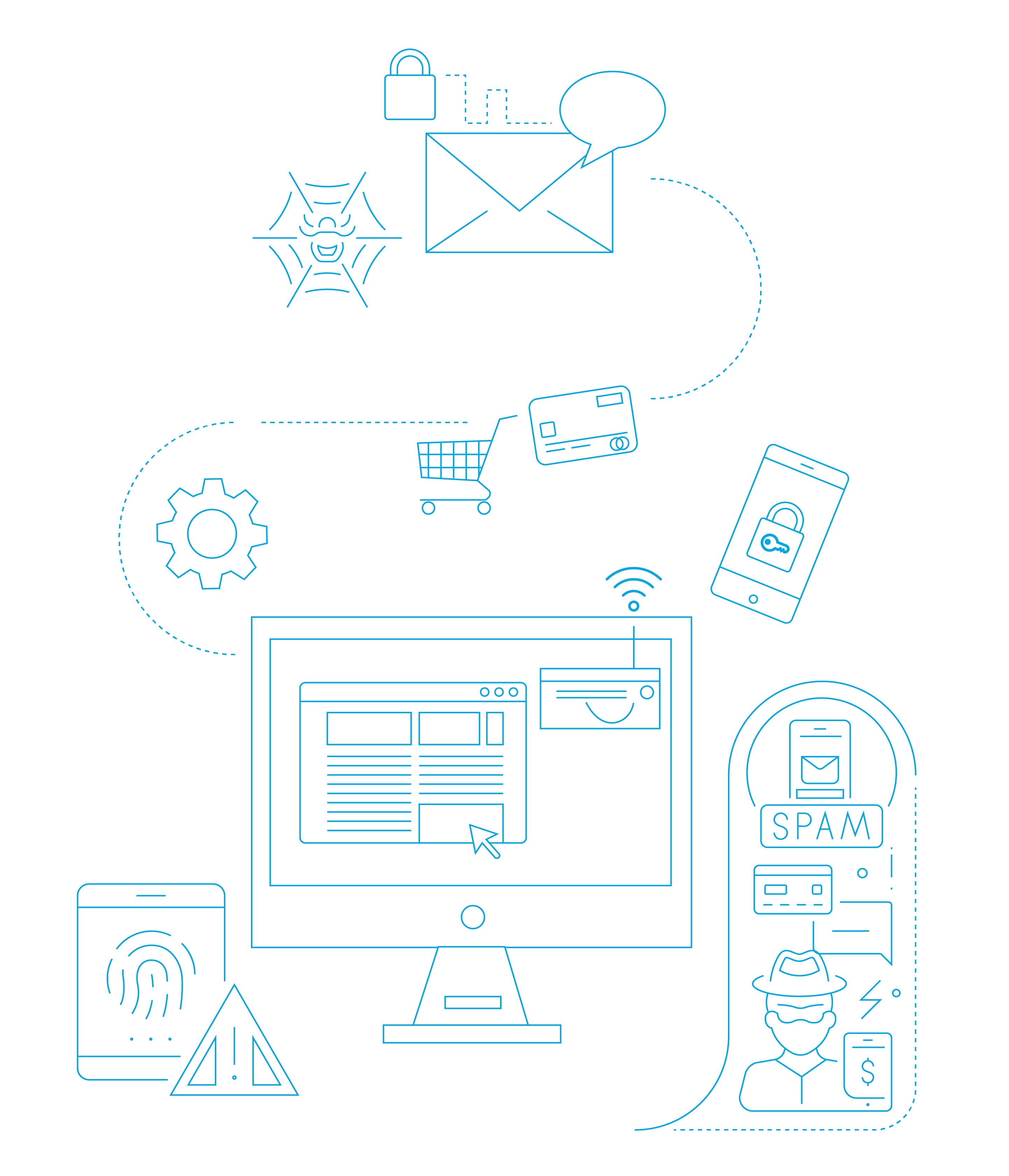One of the implications of COVID on our digital lives is that we are now more online than ever before.
With Cyber Monday just gone past and Christmas around the corner, the usual spike in online scamming is imminent. One of the direct consequences of this has been an increase in the number of cyber-attacks we are seeing both on businesses and individuals.
 A question that often gets asked this time of year is how we can remain secure online. This article outlines some simple steps around three key areas to achieve keep your digital presence safe.
A question that often gets asked this time of year is how we can remain secure online. This article outlines some simple steps around three key areas to achieve keep your digital presence safe.
Tips on apps security:
- App downloads – Do not download apps from third-party app stores. Always use legitimate app stores such as iTunes or Google Play Store.
- Unnecessary apps – Do not download unnecessary apps particularly ones that have been sent to you via links or advertisements.
- Public Wi-Fi – Be cautious when using public Wi-Fi as these could be malicious and allow uploading of malicious apps to devices.
- Advertisements – Do not click on any advertisements that are served up to avoid malware infections.
Below are some simple tips to stay safe online:
- Only shop on secure websites – Always make sure you are at the site you want by looking for “https://www…” in the address bar. Note the “s,” means you have a secure connection to that site. Look for the lock in the address bar.
- Create backups – Bad things can and do happen. Regularly back up important data so that you can recover these if your computer gets infected by ransomware.
Back up your device regularly to a completely isolated device, not on the same network, and encrypt the backup. Never pay the ransom as there is no guarantee that you will get your data back. - Don’t fall for email scams – If you don’t expect an email, ignore it. Don’t click on a link in an email.
Clicking a link in a fraudulent email can take you to a phishing site that will look so real it will fool you into entering your login information. Type in the URL instead.
And finally some tips on device security:
- Anti-malware, personal firewall/security software – ensure all personal devices have these security devices installed and updated.
- Strong passwords and multi-factor authentication – Password protect your devices including your Wi-Fi network, smartphones, and other smart devices such as smartwatches or TVs.
Don’t forget to use strong passwords that are at least 8 characters and a mix of letters, numbers, and symbols, and multi-factor authentication for mobile device account (Apple ID, etc.) security. - Updates – Make sure any apps and software you use, including your web browsers and operating software, are updated regularly.
Many updates are provided to address security issues as well as new features. Failure to update may give criminals an opportunity to hack into your computer and steal data.
The digital world has brought us many benefits with more promised for the future. With the tips noted above, you can continue to enjoy these benefits in a cyber-safe manner.
For more information about Cyber Security
If you have questions about our Cyber Security and Resilience Services, contact our Risk Advisory Team or Ashwin Pal.





